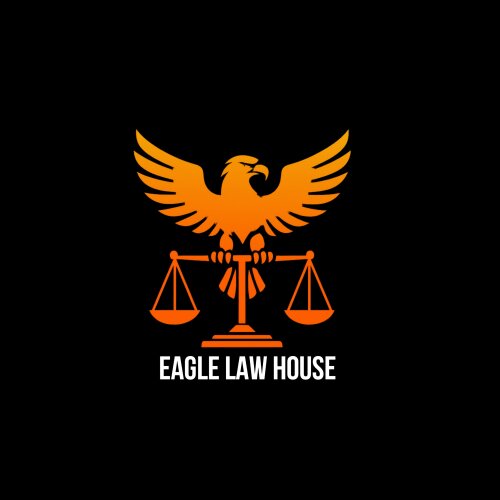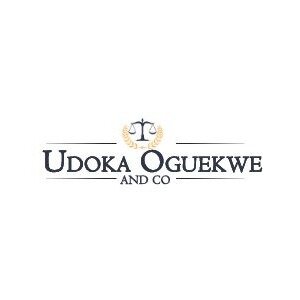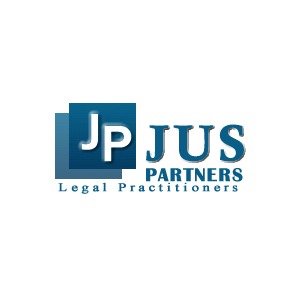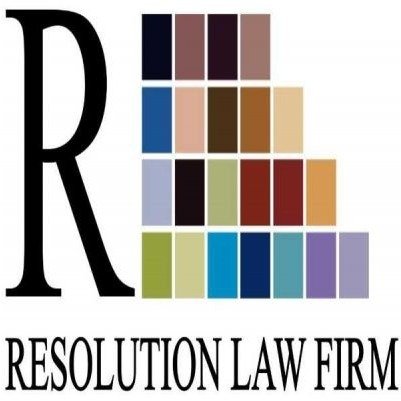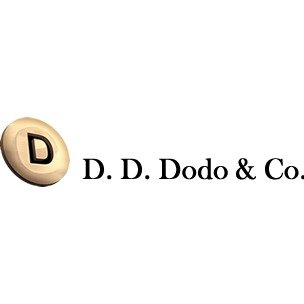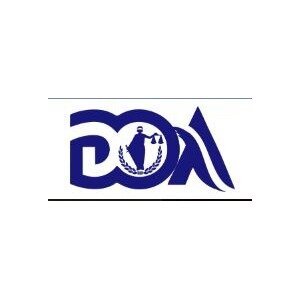Best Foreclosure Lawyers in Abuja
Share your needs with us, get contacted by law firms.
Free. Takes 2 min.
Free Guide to Hiring a Real Estate Lawyer
List of the best lawyers in Abuja, Nigeria
About Foreclosure Law in Abuja, Nigeria
Foreclosure in Abuja, Nigeria, involves the legal process where a lender seeks to recover the balance of a loan from a borrower who has stopped making payments. This process results in the sale of the asset used as the collateral for the loan, typically a house or land, to repay the owed balance. In Nigeria, foreclosure is a severe measure taken by financial institutions or lenders when a borrower defaults on their mortgage or loan payments. The process and legal implications can be complex, requiring careful navigation of local laws and regulations.
Why You May Need a Lawyer
There are several situations where you might require legal assistance regarding foreclosure:
- Default on Payments: If you are behind on mortgage payments, a lawyer can explore available options to avoid foreclosure.
- Negotiations with Lenders: Sometimes lenders may be willing to negotiate new terms, and a lawyer can help facilitate this process.
- Understanding Your Rights: Navigating the legal system can be complicated; a lawyer can provide clarity on your rights as a borrower.
- Foreclosure Defense: If foreclosure proceedings have begun, a lawyer may help in formulating a defense.
- Assistance with Legal Documents: Ensuring that all documents are correctly filed and understood can be crucial to avoiding foreclosure.
Local Laws Overview
Foreclosure laws in Abuja, Nigeria, are fundamentally tied to the nation's land use acts and mortgage agreements. Key aspects include:
- Land Use Act: Regulates the use of land, making it essential for foreclosure due to the collateral nature of real property loans.
- Judicial Process: Foreclosures generally require a court order, making it a judicial foreclosure process.
- Equity of Redemption: Borrowers may have the right to reclaim their property by paying off the entire debt before the foreclosure sale.
- Rights of Notice: Borrowers must be properly informed of the foreclosure proceedings and any associated steps.
Frequently Asked Questions
What is foreclosure?
Foreclosure is the legal process by which a lender attempts to recover the loan balance from a borrower who has defaulted on payments by selling the asset used as collateral.
Can foreclosure be avoided?
Yes, foreclosure can often be avoided by negotiating new terms with the lender, seeking refinancing, or paying off the arrears before proceedings begin.
How long does the foreclosure process take in Abuja?
The timeline varies depending on the judicial proceedings, but it generally takes several months from the initiation of legal action to the foreclosure sale.
What rights do I have as a borrower?
Borrowers have the right to notice of foreclosure proceedings, the right to redeem the property before the sale, and the right to a fair legal process.
Are there any alternatives to foreclosure?
Alternatives include loan modification, short sale, deed in lieu of foreclosure, and bankruptcy. Consult a lawyer for the best option suited to your situation.
What is a short sale?
A short sale occurs when the property is sold for less than the owed mortgage balance, with the lender agreeing to accept the sale proceeds as full settlement of the mortgage.
Will foreclosure affect my credit rating?
Yes, foreclosure significantly impacts your credit score and may remain on your credit report for several years, affecting future borrowing capabilities.
Can I get my house back after foreclosure?
Once the foreclosure sale is finalized, it is generally not possible to reclaim the property unless specific provisions for redemption exist, and payment of owed amounts is made promptly.
What happens to any remaining balance after the foreclosure sale?
In some cases, the borrower might be responsible for any remaining balance if the sale proceeds do not cover the entire loan (also known as a deficiency balance).
How can a lawyer assist me during a foreclosure?
A lawyer can provide legal advice, represent you in court, negotiate with lenders on your behalf, and help explore foreclosure alternatives to protect your interests.
Additional Resources
There are several resources available for those dealing with foreclosure in Abuja:
- Nigerian Bar Association: Provides a directory of licensed lawyers who can assist in foreclosure cases.
- Federal Mortgage Bank of Nigeria: Offers guidance and support for homeowners facing foreclosure.
- Housing Advocacy Groups: Local NGOs may provide support and information on housing rights and foreclosure options.
- Lagos Multi-Door Courthouse: An option for mediation services to help resolve disputes outside of court.
Next Steps
If you need legal assistance in foreclosure, consider taking the following steps:
- Consult a Lawyer: Contact a qualified lawyer who specializes in property or foreclosure law in Nigeria.
- Gather Documentation: Compile all relevant documents, including mortgage agreements, payment records, and correspondence with lenders.
- Explore Alternatives: Discuss potential alternatives to foreclosure with your lawyer.
- Stay Informed: Educate yourself about your rights and the foreclosure process to make informed decisions.
- Seek Support: Reach out to advocacy groups and organizations for guidance and emotional support during this process.
Lawzana helps you find the best lawyers and law firms in Abuja through a curated and pre-screened list of qualified legal professionals. Our platform offers rankings and detailed profiles of attorneys and law firms, allowing you to compare based on practice areas, including Foreclosure, experience, and client feedback.
Each profile includes a description of the firm's areas of practice, client reviews, team members and partners, year of establishment, spoken languages, office locations, contact information, social media presence, and any published articles or resources. Most firms on our platform speak English and are experienced in both local and international legal matters.
Get a quote from top-rated law firms in Abuja, Nigeria — quickly, securely, and without unnecessary hassle.
Disclaimer:
The information provided on this page is for general informational purposes only and does not constitute legal advice. While we strive to ensure the accuracy and relevance of the content, legal information may change over time, and interpretations of the law can vary. You should always consult with a qualified legal professional for advice specific to your situation.
We disclaim all liability for actions taken or not taken based on the content of this page. If you believe any information is incorrect or outdated, please contact us, and we will review and update it where appropriate.



